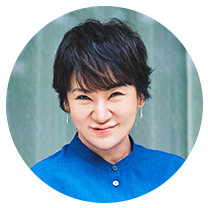

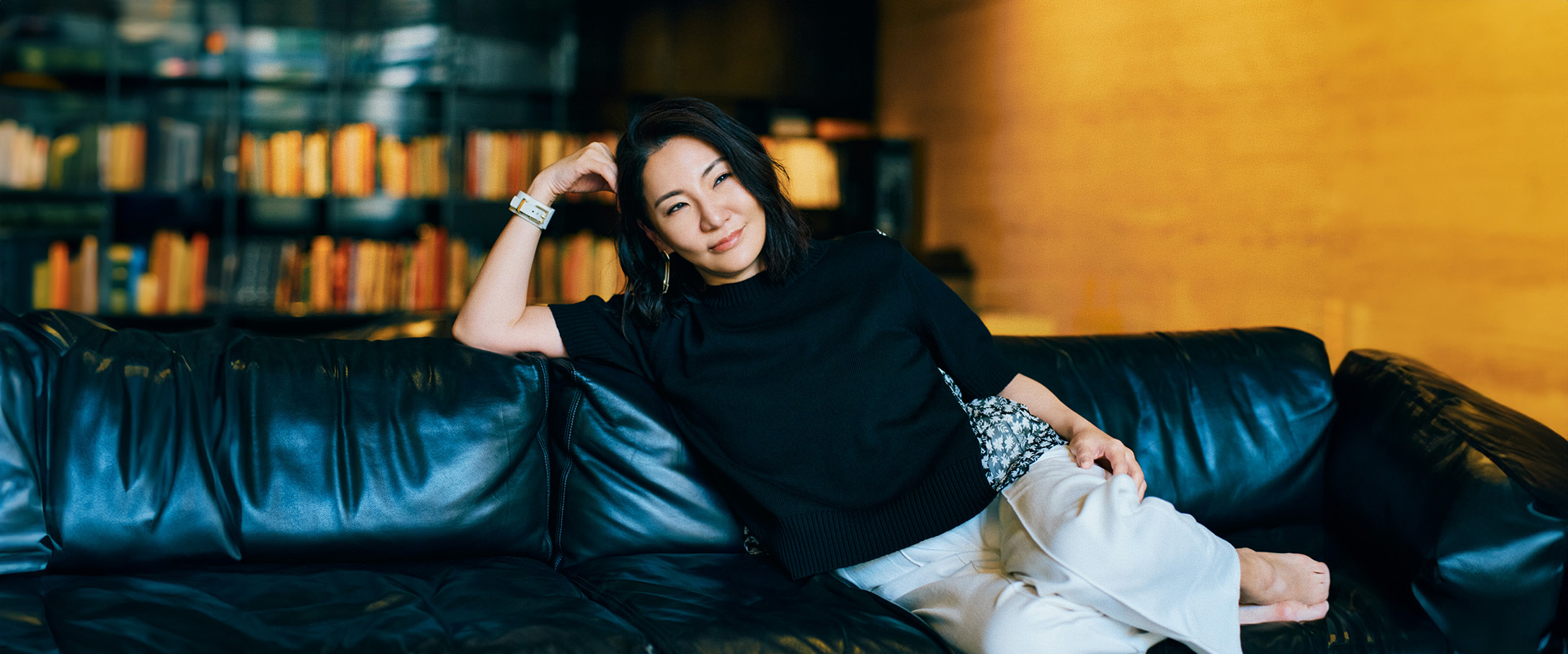
A gifted musician from childhood, Kohmi Hirose began advanced music education from an early age.
She entered the Fukuoka Jogakuin Junior & Senior High School to join the school’s well-known music department, aspiring to become a composer.
She transitioned through the piano, organ, and composition departments at Fukuoka Jogakuin.
After graduation, she was admitted to the Kunitachi College of Music Department of Performance & Composition.
During her time at Kunitachi, she traveled back and forth between Los Angeles, CA and Japan.
During her stays in Los Angeles, a demo recording of her own compositions caught the ear of record company staff,
and Kohmi Hirose made her debut with Victor Entertainment in 1992.
After releasing her first single, Ai ga Areba Daijobu (All You Need is Love[EJ1] ), in 1992,
she had a string of hits,including Romance no Kamisama (The Cupid of Romance),
Gelande ga Tokeru Made Koi Shitai (Love Until the Snow Melts from the Slopes), and DEAR…again.
Her winter-themed music was used in popular TV commercials, earning her the title, Queen of Winter.
In addition to annual piano concerts and band tours, she is a voice trainer and active YouTuber, creating connections through music.
Kohmi Hirose is also rapidly becoming the Queen of Content through her active YouTube, TikTok, and other social media channels.
Even after 30 years in the music business, Kohmi Hirose still astonishes with her energy and passion for new challenges.
To date, she has more than 1 million followers across her social media channels.
In 2022, her original Romance no Kamisama dance went viral on TikTok,
topping the Billboard JAPAN TikTok Weekly Top 20 chart for two consecutive weeks and surpassing 500 million views.
In 2022, she released her latest song, Venus Line, which reached No.6 on the Billboard JAPAN TikTok Weekly Top 20.
Also in 2022, Romance no Kamisama became a generation-spanning national song in Japan,
cementing Kohmi Hirose’s position as a musician loved by all age groups.
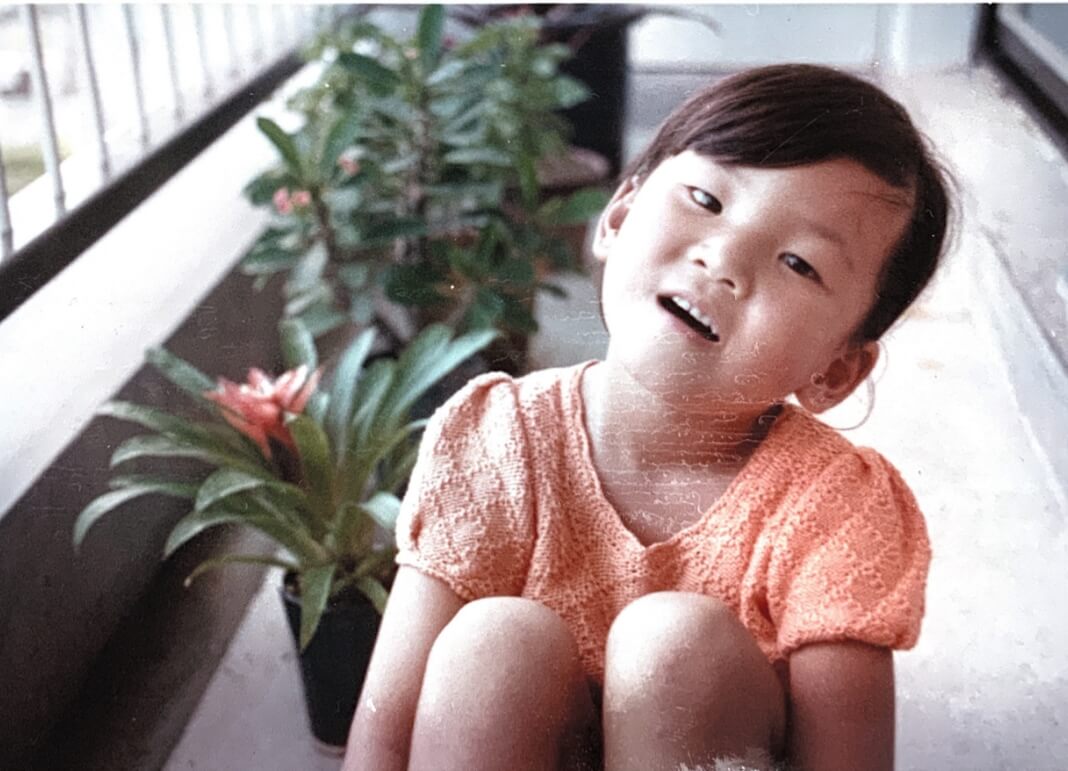
Born in Nachikatsuura-cho, Wakayama Prefecture, Kohmi Hirose was raised in Fukuoka Prefecture.
A gifted musician from childhood, Kohmi Hirose began advanced music education from the age of three.
She began composing her own music at the age of six.
At four, she began learning the piano, and she began studies of classical music composition methods,
including harmonies, at five years of age.
When she was six, she completed his first work, titled “Papa and Mama.”
The first record she ever purchased herself was Bach’s “Matthäus-Passion.”
Her teacher told her that this work was full of compositional methods the would help her learn the rules of composition.
She listened to the record day and night, even during family dinner.
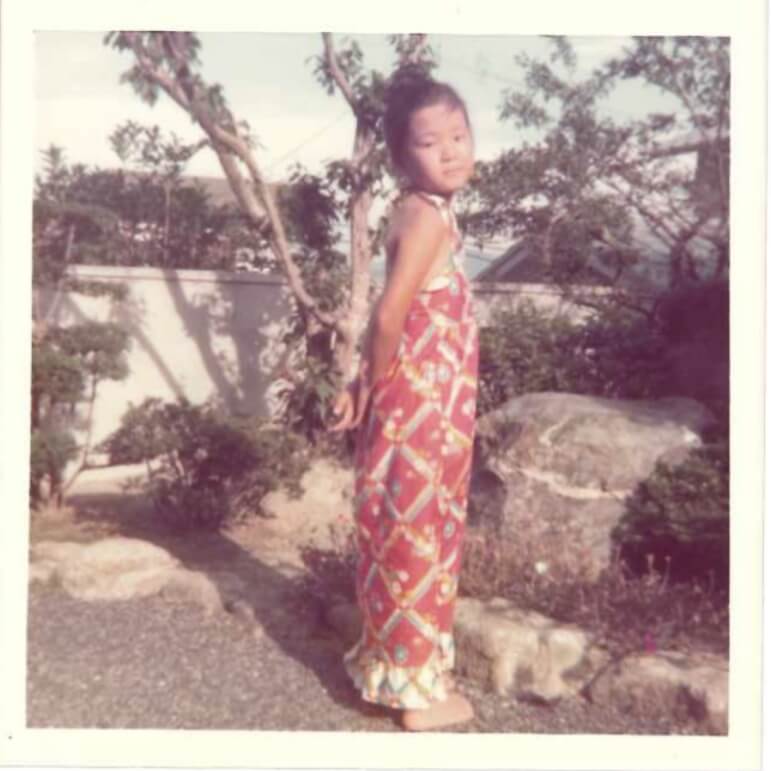
Kohmi Hirose looks back on her elementary and junior high school years as the peak of her composing career.
Day and night, even in her dreams, she would think of melodies, turning them about in her head.
Any new melody that came to mind, she would immediately write down on staff paper, complete with supplemental notes.
Many of the songs Kohmi Hirose released in later years were based on melodies she created as a child.
The characteristic ups and downs of her style reflect the fact that these pieces were originally written for piano, violin,
or other instruments, rather than as songs to be sung by a vocalist.
Fukuoka Jogakuin Junior and Senior High School (Music Department).
During here junior and senior high school years, Kohmi Hirose often composed music on her way to school. As a matter of fact, she composed everything but the chorus to Romance no Kamisama (The Cupid of Romance) at the Nishitetsu Ijiri bus stop. She composed the chorus to Ai ga Areba Daijobu (All You Need is Love) on the pedestrian bridge over the Ijiri rokkaku intersection. She even cites her first schoolgirl crush as “Su-kun[EJ1] ,” the name she called the Nishitetsu bus she rode to school. Dreaming of attending music college in Tokyo, Kohmi Hirose flew to Tokyo every two weeks for extra lessons in addition to her studies in her home of Fukuoka.
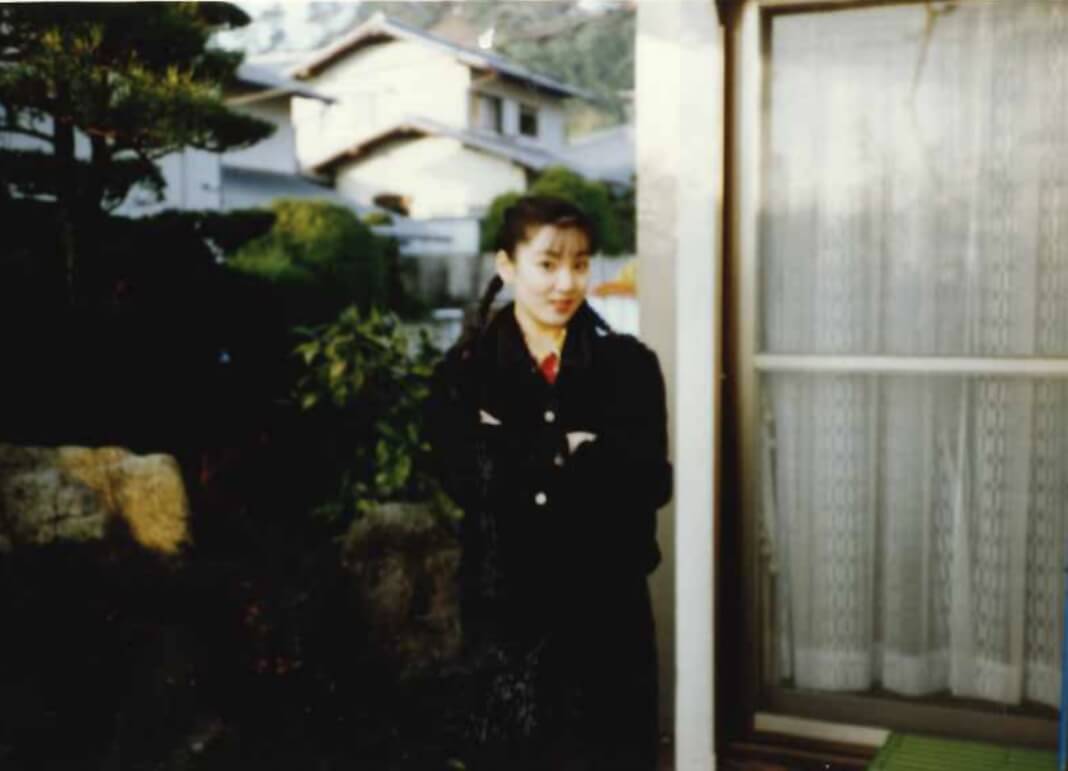
fter graduating from Fukuoka Jogakuin Junior and Senior High School (Music Department),
Kohmi was admitted to the Kunitachi College of Music Department of Performance & Composition.
Unfortunately, her grades were less than outstanding.
When asked, “What do you want to do with your life?” by one of her instructors, Kohmi answered,
“I want to be a composer.” The instructor replied, “That will never happen for you.”
Denied the music theory instruction and the dreams she had nurtured since childhood,
Kohmi traveled to Los Angeles to visit a high school friend for a change of pace.
There, she was thrilled to see Michael Jackson and Madonna perform live, awakening to the potential of pop music.
She thought to herself that if she arranged the classical pieces she had written for Michael Jackson to sing,
they would become big hits. So she began pursuing the dream of writing songs for Michael.
She immediately began studying pop music, which became a major turning point for her career.
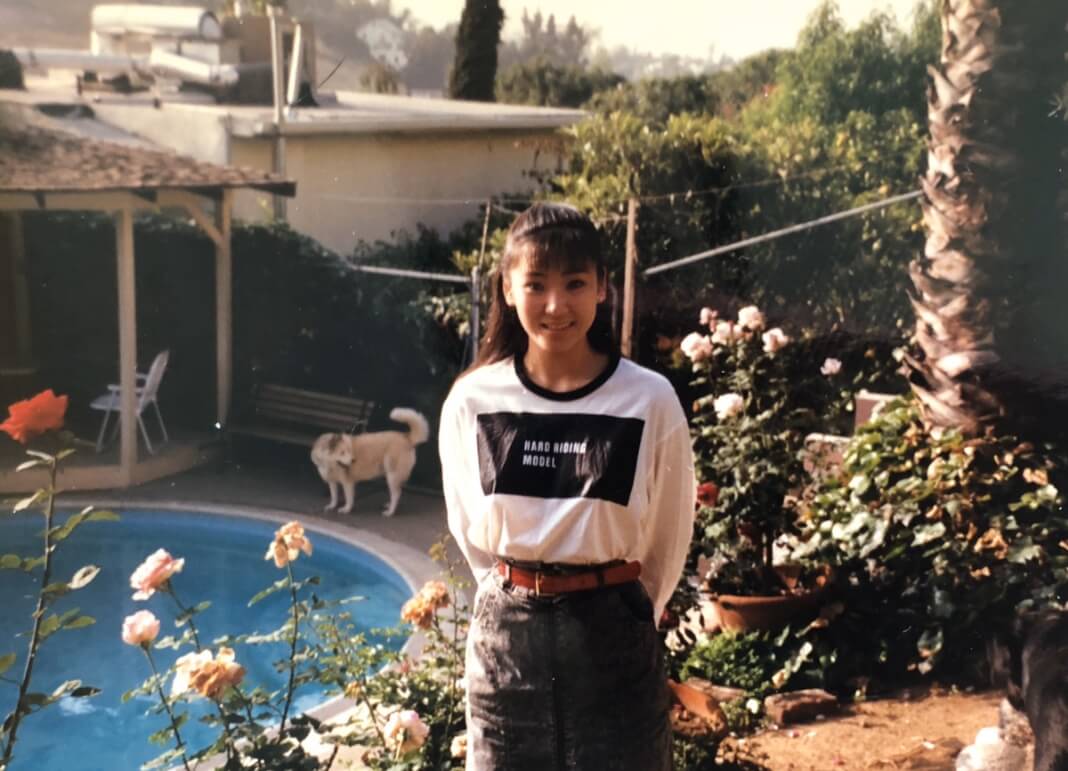
After moving to the U.S., Kohmi auditioned for Seth Riggs,
voice trainer for Michael Jackson, Diana Ross, and Whitney Houston, in Los Angeles.
To get as close to Michael as possible, she made a direct appeal to Riggs to teach her composing and producing.
As a result, she was advised to take vocal training as well, if she wanted to write songs for vocalists.
She became the first person from Asia to pass the course[EJ2] , and she studied under Seth Riggs for about three years.
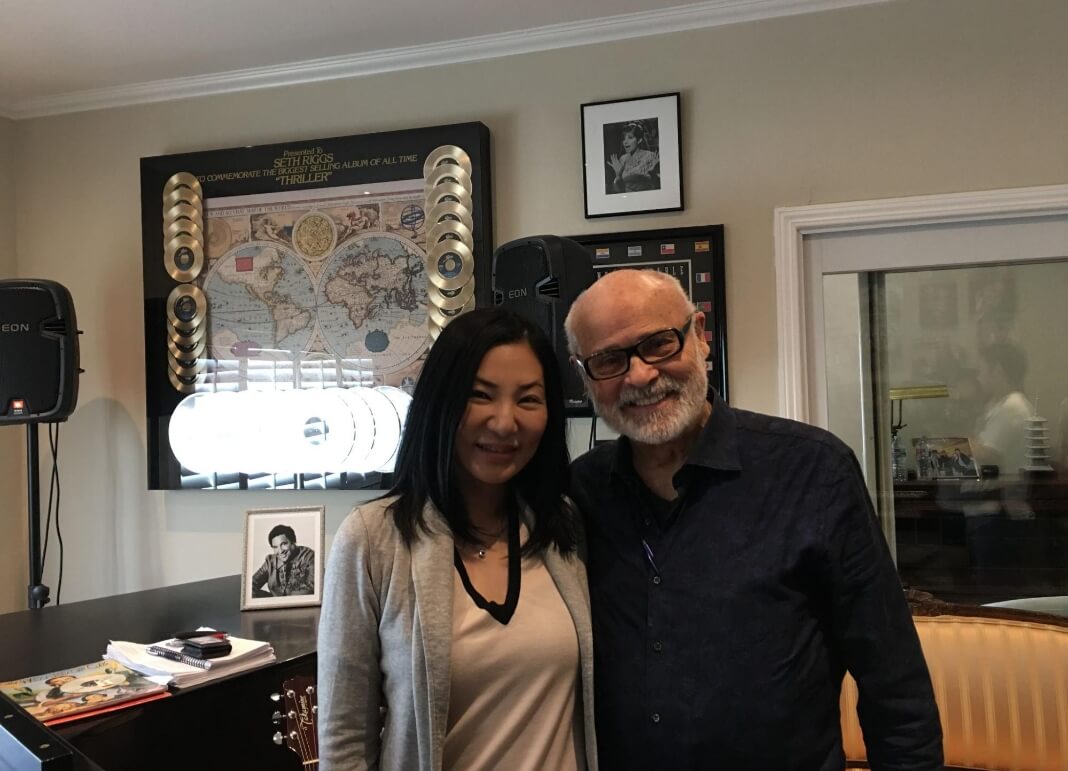
After completing her training, Kohmi created a demo tape,
which was the object of competition among major recording companies.
Through a chance meeting with Mitsuyoshi Tamura, a producer at Victor Music Industry (now Victor Entertainment),
Kohmi was chosen to make her debut as a singer-songwriter with the company.
An unknown at the time, Kohmi Hirose was selected by Alpen, a newly established company, for a corporate promotional song. The song, her third single, Romance no Kamisama (God of Romance), became a big hit, selling approximately 1.75 million copies on the Oricon charts. With this hit, Kohmi’s name recognition spread rapidly.
Kohmi has produced hit winter songs nearly every year since, including Shiawase wo Tssukamitai
(I Want Happiness) (1994), Gerende ga Tokeru Hodo Koi Shitai (Love Until the Snow Melts) (1995), promise (1997), and Manatsu no Kaerimichi (Summer Road Home) (1997). Her string of winter hits has led to her becoming known as the Queen of Winter.
The tie-up with Alpen that led to Kohmi becoming the Queen of Winter ran from 1993 to 2002, and again from 2007 to 2016.
In addition to his singing activities, she also began directing music for TV dramas, movies, and musicals, as well as writing and producing songs for many artists.
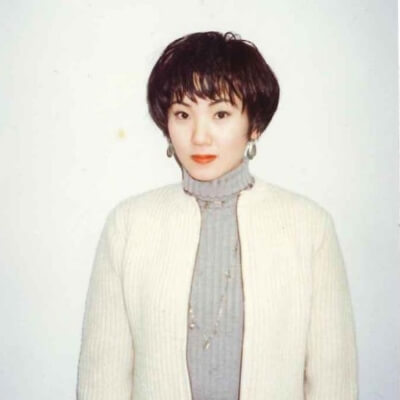
●First-ever live concert, Kohmi Hirose Winter Collection 2001-2002 commemorating the 10th anniversary of her debut.
She also held her first concert in the Budokan. Tickets sold out immediately for the much-anticipated concert.

●In October, Kohmi Hirose visited the snow slopes for the first time on location for NHK’s SONGS program. During the broadcast, the Queen of winter confessed for the first time that didn’t really like winter.
●In May, she launched Friday Kohmi, a broadcast on the video-sharing service Ustream. Friday Kohmi became a live program with a variety of guests, and was well-received for its music and talk.
●In October, Kohmi Hirose Radio de Foro~mi (Radio Kohmi Hirose) began, which was Kohmi Hirose’s first regular radio program on a national network (aired on Nippon Broadcasting System, Inc. and 35 other stations nationwide).
●In November she performed in Weekly ASCII Live! GOLD, an event held in Akihabara and sponsored by Weekly ASCII. She wrote a serialized column in the Weekly ASCII magazine titled, Kohmi Hirose’s Akiba Onna e no Michi (The Road to Becoming an Akiba Woman).
●Performed in Kohmi Hirose x Kurayami Shokudo ~the dinner show~” (Challenging music x kurayami) in December. She sang Don’t Go Away, accompanying herself on the piano and wearing an eye mask.
●In December, she appeared in the Nippon Broadcasting System program, Kenichiro Mogi and Kami Hirose’s Radio de Zubari! New Year’s Eve Special! ~Jump to a brighter future! ~.
●In April, Kohmi Hirose was named music director for Kohmi Hirose Music with
●In December, she was named music director for NHK Educational Television’s Shumi Do Raku: Mezase Karaoke O King, Hirose Kohmi no Vocal Lesson Part 2 (Karaoke King: Kohmi Hirose Vocal Lessons Part 2)
●Published the book Koi mo Shigoto mo Suteki ni Kagayaku Hanashikata (Speak Beautifully for Work and Love).
●In May, Kohmi Hirose won the SNOW AWARD & CONVENTION 2019, SNOW Cultural Merit Award in the artist category.
●In September, Kohmi Hirose performed as Kohmi Hirose with C2 Kikan 1MYB (Daiichi Ongaku Yugeki Butai in Chinjuu) 2019 in Sasebo Chinjuu Special Opening Live, a concert commemorating the 130th anniversary of the opening of Sasebo Chinjuu Office and Sasebo Port. She caused a stir when addressing the admirals as “Oi Oi Kun” and commented that the audience use of penlights during the performance was not only polite, but also cute.
●In December, Kohmi Hirose launched the Official Kohmi Hirose YouTube channel
https://www.youtube.com/c/%E5%BA%83%E7%80%AC%E9%A6%99%E7%BE%8EOfficialYouTubechannel
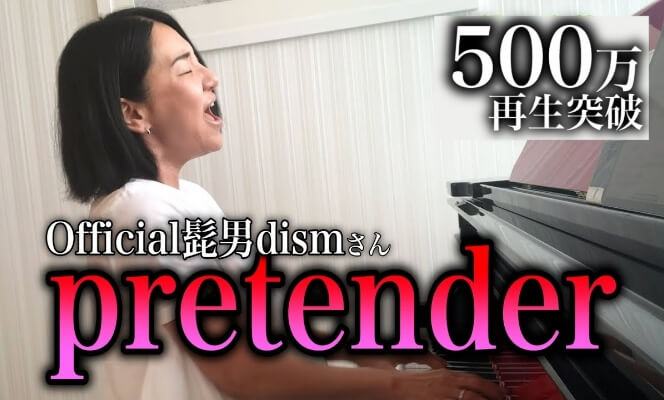
●Appointed as a hometown ambassador for her birthplace, Nachikatsuura-cho, Wakayama Prefecture.
●Served as music director for the music in the new NIVEA Kao Summer NIVEA TV commercial.
●Selected as a performer for the year-end Jumbo Lottery commercial. Her singing of Jumbo – Jumbo – Jumbo became a big hit.
●Released Kimi ni Serenade (A Serenade for You), which was chosen as the broadcast theme song for TV Tokyo’s Winter Sports 2022 programming.
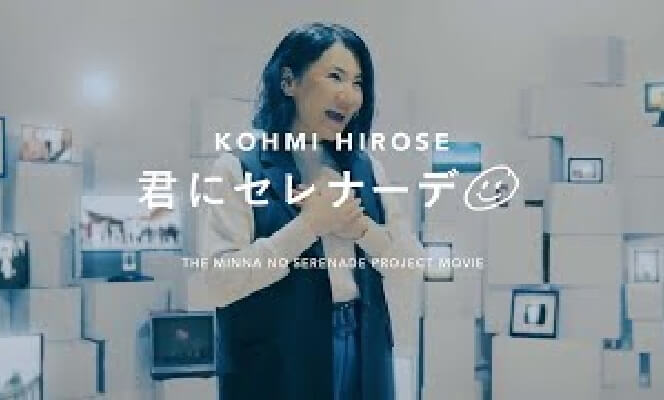
●In February, the original Romance no Kamisama dance went viral on TikTok, topping the Billboard JAPAN TikTok Weekly Top 20 chart for two consecutive weeks and surpassing 1.6 billion views, including related videos.
●Released Venus Line in April, which reached No.6 on the Billboard JAPAN TikTok Weekly Top 20.
●In July, Romance no Kamisama won the TikTok 2022 First Half Trend Award. The song became a generation-spanning national hit in Japan, cementing Kohmi Hirose’s position as a musician loved by all age groups.
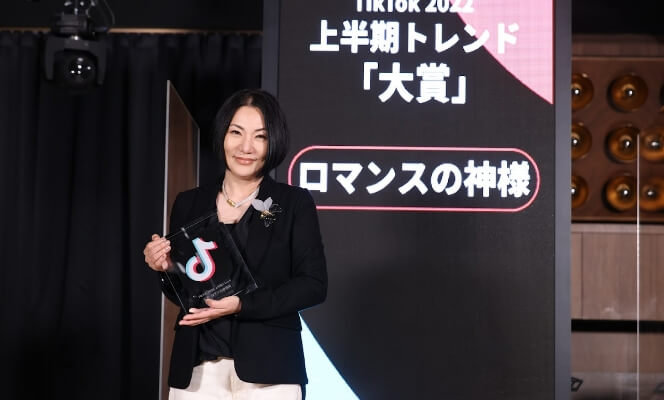
●On July 22, she marked the 30th anniversary of her professional debut.
The first-ever Kohmi Fest was streamed live on YouTube to commemorate the anniversary of her debut. In an ambitious project, Kohmi sang 30 songs chosen by her fans for the live broadcast.
July 22: Debuted with the album Bingo!
December: First single, Ai ga Areba Daijoubu (All You Need is Love), selected and released as the theme song for the movie Yamai ha Ki Kara:
Byoin e Iko 2. The song was a 17-week hit,
posting sales of 112,000 copies.
![1992[EJ3]](/img/profile/img_history_bottom_01_pc.jpg)
●Best-selling album, Kohmi Hirose THE BEST Love Winters, sells 2.4 million copies. In the same year, the album won the 13th Japan Gold Disc Award for Pop Album of the Year
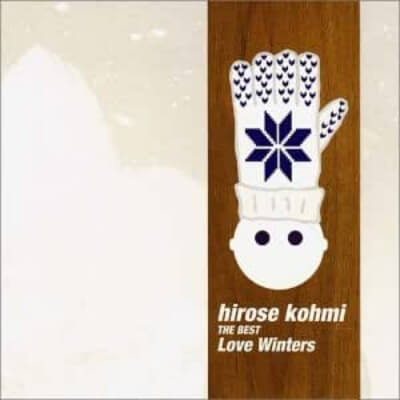
●Opening of the Kohmi Hirose Music School, headed by the artist herself. The school advocated her own unique methods under which the school provided voice training and vocal lessons. She was also named a visiting professor at Fukuoka Jogakuin University.
●Kohmi Hirose was one of the first Japanese artists to set up a Twitter account, thanks to the recommendation of her friend Kazuyo Katsuma. Kohmi became the first major Japanese artist to hold a concert on Twitter, leading to her being dubbed, Queen of Twitter. At the time, she became famous for naming the Twitter logo “Hughie Heehee[EJ4] ,” and she produced songs such as “Viva☆Hughie Heehee” and “Viva☆Akihabara.”
●In December, “Viva☆Best,” which included the Twitter concert, was released as a PC distribution-only album.
●Co-authored Tsunagaru Chikara (The Power to Connect) with Kazuyo Katsuma, released in December.
●Released charity song Egao no Megamisama (Goddess of Smiles), written to support victims of the Great East Japan Earthquake. The song included the performance of a 120-member chorus (Friday Kohmi Chorus).
●In April, Kohmi began a music class on TV Asahi’s Daimei no Nai Gakkai (Concert with No Title).
●Published the books Kyo Kara Uta ga Umakunaru! Hirose Kohmi no Utaikata Kyoshitsu (Kohmi Hirose’s Voice Lessons) and Zettai Onkan no Doremichan (Doremi With the Perfect Pitch).
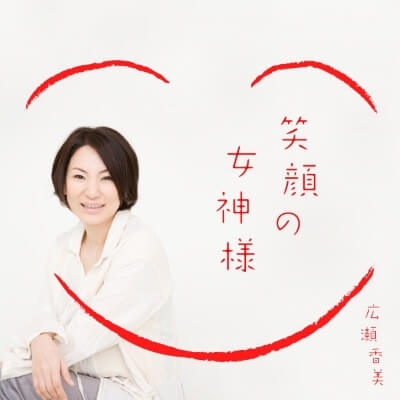
●Kohmi Hirose named music director for NHK Educational Television’s Shumi Do Raku: Dare Demo Uta ha Umaku Naru! Hirose Kohmi no Vocal Lesson (Kohmi Hirose Vocal Lessons)
Established the Kohmi Hirose Chorus. The song, Saiko no Ending wo Tomo ni (A Perfect Ending Together), was performed as the choir’s theme song.
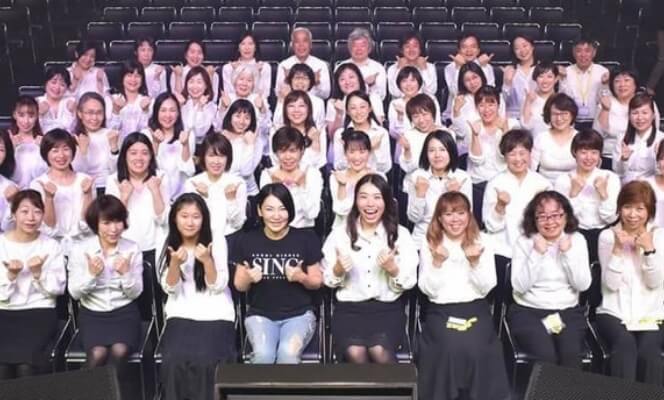
●Posted a series of Kohmi Hirose Sings XX on her own YouTube channel. The series drew an enormous response for her uninhibited performances, and channel subscribers exceeded 430,000.
●Her, “I Tried Singing XX” series has been well received, and she has appeared on numerous television programs.
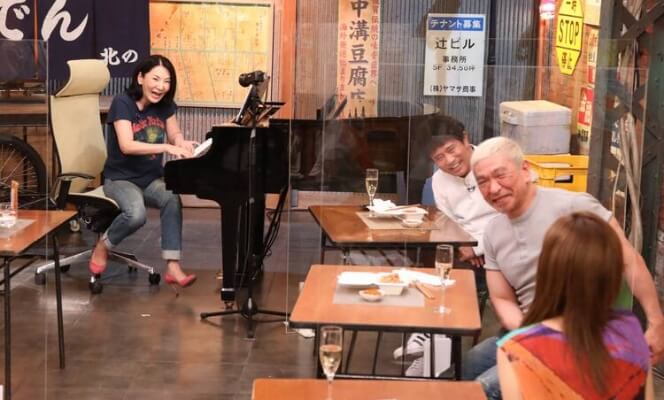
●Released the album, Utatte Mita Utawarete Mita (I Tried Singing), featuring improvised songs from her YouTube channel and TV show.
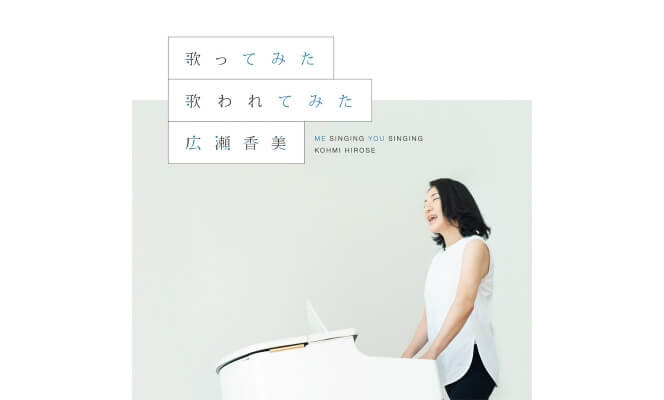
●Released an entire live performance on the last day of Winter Tour2020 SING concert tour for free on YouTube. Full-length video of the concert released for sale on SD card, a first-ever for Japan.
●Performed as a special guest in the promotional video for Toki no Tabibito: Reiwa Yukari no Chi/Dazaifu no Uta (Travels in Time, Land of Reiwa: Song of Dazaifu) , a song used as a promotional song for her hometown of Dazaifu, Fukuoka Prefecture.
●Performed Hoero Lions LIONS 70th Version (Roar, Lions!) for the Seibu Lions; played as a cheerleading song during the season.
●The fleet collection album Kankore: Admiral’s Good Time reached No. 1 on the Oricon Charts.
July 22: Debuted with the album Bingo!
December: First single, Ai ga Areba Daijoubu (All You Need is Love), selected and released as the theme song for the movie Yamai ha Ki Kara:
Byoin e Iko 2. The song was a 17-week hit,
posting sales of 112,000 copies.
![1992[EJ3]](/img/profile/img_history_bottom_01_pc.jpg)
An unknown at the time, Kohmi Hirose was selected by Alpen, a newly established company, for a corporate promotional song. The song, her third single, Romance no Kamisama (God of Romance), became a big hit, selling approximately 1.75 million copies on the Oricon charts. With this hit, Kohmi’s name recognition spread rapidly.
Kohmi has produced hit winter songs nearly every year since, including Shiawase wo Tssukamitai
(I Want Happiness) (1994), Gerende ga Tokeru Hodo Koi Shitai (Love Until the Snow Melts) (1995), promise (1997), and Manatsu no Kaerimichi (Summer Road Home) (1997). Her string of winter hits has led to her becoming known as the Queen of Winter.
The tie-up with Alpen that led to Kohmi becoming the Queen of Winter ran from 1993 to 2002, and again from 2007 to 2016.
In addition to his singing activities, she also began directing music for TV dramas, movies, and musicals, as well as writing and producing songs for many artists.

●Best-selling album, Kohmi Hirose THE BEST Love Winters, sells 2.4 million copies. In the same year, the album won the 13th Japan Gold Disc Award for Pop Album of the Year

●Opening of the Kohmi Hirose Music School, headed by the artist herself. The school advocated her own unique methods under which the school provided voice training and vocal lessons.
She was also named a visiting professor at Fukuoka Jogakuin University.
●First-ever live concert, Kohmi Hirose Winter Collection 2001-2002 commemorating the 10th anniversary of her debut.
She also held her first concert in the Budokan. Tickets sold out immediately for the much-anticipated concert.

●Kohmi Hirose was one of the first Japanese artists to set up a Twitter account, thanks to the recommendation of her friend Kazuyo Katsuma. Kohmi became the first major Japanese artist to hold a concert on Twitter, leading to her being dubbed, Queen of Twitter. At the time, she became famous for naming the Twitter logo “Hughie Heehee[EJ4] ,” and she produced songs such as “Viva☆Hughie Heehee” and “Viva☆Akihabara.”
●In December, “Viva☆Best,” which included the Twitter concert, was released as a PC distribution-only album.
●Co-authored Tsunagaru Chikara (The Power to Connect) with Kazuyo Katsuma, released in December.
●In October, Kohmi Hirose visited the snow slopes for the first time on location for NHK’s SONGS program. During the broadcast, the Queen of winter confessed for the first time that didn’t really like winter.
●In May, she launched Friday Kohmi, a broadcast on the video-sharing service Ustream. Friday Kohmi became a live program with a variety of guests, and was well-received for its music and talk.
●In October, Kohmi Hirose Radio de Foro~mi (Radio Kohmi Hirose) began, which was Kohmi Hirose’s first regular radio program on a national network (aired on Nippon Broadcasting System, Inc. and 35 other stations nationwide).
●In November she performed in Weekly ASCII Live! GOLD, an event held in Akihabara and sponsored by Weekly ASCII. She wrote a serialized column in the Weekly ASCII magazine titled, Kohmi Hirose’s Akiba Onna e no Michi (The Road to Becoming an Akiba Woman).
●Performed in Kohmi Hirose x Kurayami Shokudo ~the dinner show~” (Challenging music x kurayami) in December. She sang Don’t Go Away, accompanying herself on the piano and wearing an eye mask.
●In December, she appeared in the Nippon Broadcasting System program, Kenichiro Mogi and Kami Hirose’s Radio de Zubari! New Year’s Eve Special! ~Jump to a brighter future! ~.
●Released charity song Egao no Megamisama (Goddess of Smiles), written to support victims of the Great East Japan Earthquake.
The song included the performance of a 120-member chorus (Friday Kohmi Chorus).
●In April, Kohmi began a music class on TV Asahi’s Daimei no Nai Gakkai (Concert with No Title).
●Published the books Kyo Kara Uta ga Umakunaru! Hirose Kohmi no Utaikata Kyoshitsu (Kohmi Hirose’s Voice Lessons) and Zettai Onkan no Doremichan (Doremi With the Perfect Pitch).

●Kohmi Hirose named music director for NHK Educational Television’s Shumi Do Raku: Dare Demo Uta ha Umaku Naru! Hirose Kohmi no Vocal Lesson (Kohmi Hirose Vocal Lessons)
●In April, Kohmi Hirose was named music director for Kohmi Hirose Music with
●In December, she was named music director for NHK Educational Television’s Shumi Do Raku: Mezase Karaoke O King, Hirose Kohmi no Vocal Lesson Part 2 (Karaoke King: Kohmi Hirose Vocal Lessons Part 2)
●Published the book Koi mo Shigoto mo Suteki ni Kagayaku Hanashikata (Speak Beautifully for Work and Love).
Established the Kohmi Hirose Chorus. The song, Saiko no Ending wo Tomo ni (A Perfect Ending Together), was performed as the choir’s theme song.

●In May, Kohmi Hirose won the SNOW AWARD & CONVENTION 2019, SNOW Cultural Merit Award in the artist category.
●In September, Kohmi Hirose performed as Kohmi Hirose with C2 Kikan 1MYB (Daiichi Ongaku Yugeki Butai in Chinjuu) 2019 in Sasebo Chinjuu Special Opening Live, a concert commemorating the 130th anniversary of the opening of Sasebo Chinjuu Office and Sasebo Port. She caused a stir when addressing the admirals as “Oi Oi Kun” and commented that the audience use of penlights during the performance was not only polite, but also cute.
●In December, Kohmi Hirose launched the Official Kohmi Hirose YouTube channel
https://www.youtube.com/c/%E5%BA%83%E7%80%AC%E9%A6%99%E7%BE%8EOfficialYouTubechannel

●Posted a series of Kohmi Hirose Sings XX on her own YouTube channel. The series drew an enormous response for her uninhibited performances, and channel subscribers exceeded 430,000.
●Her, “I Tried Singing XX” series has been well received, and she has appeared on numerous television programs.

●Released the album, Utatte Mita Utawarete Mita (I Tried Singing), featuring improvised songs from her YouTube channel and TV show.

●Released an entire live performance on the last day of Winter Tour2020 SING concert tour for free on YouTube. Full-length video of the concert released for sale on SD card, a first-ever for Japan.
●Performed as a special guest in the promotional video for Toki no Tabibito: Reiwa Yukari no Chi/Dazaifu no Uta (Travels in Time, Land of Reiwa: Song of Dazaifu) , a song used as a promotional song for her hometown of Dazaifu, Fukuoka Prefecture.
●Performed Hoero Lions LIONS 70th Version (Roar, Lions!) for the Seibu Lions; played as a cheerleading song during the season.
●The fleet collection album Kankore: Admiral’s Good Time reached No. 1 on the Oricon Charts.
●Appointed as a hometown ambassador for her birthplace, Nachikatsuura-cho, Wakayama Prefecture.
●Served as music director for the music in the new NIVEA Kao Summer NIVEA TV commercial.
●Selected as a performer for the year-end Jumbo Lottery commercial. Her singing of Jumbo – Jumbo – Jumbo became a big hit.
●Released Kimi ni Serenade (A Serenade for You), which was chosen as the broadcast theme song for TV Tokyo’s Winter Sports 2022 programming.

●In February, the original Romance no Kamisama dance went viral on TikTok, topping the Billboard JAPAN TikTok Weekly Top 20 chart for two consecutive weeks and surpassing 1.6 billion views, including related videos.
●Released Venus Line in April, which reached No.6 on the Billboard JAPAN TikTok Weekly Top 20.
●In July, Romance no Kamisama won the TikTok 2022 First Half Trend Award. The song became a generation-spanning national hit in Japan, cementing Kohmi Hirose’s position as a musician loved by all age groups.

●On July 22, she marked the 30th anniversary of her professional debut.
The first-ever Kohmi Fest was streamed live on YouTube to commemorate the anniversary of her debut. In an ambitious project, Kohmi sang 30 songs chosen by her fans for the live broadcast.